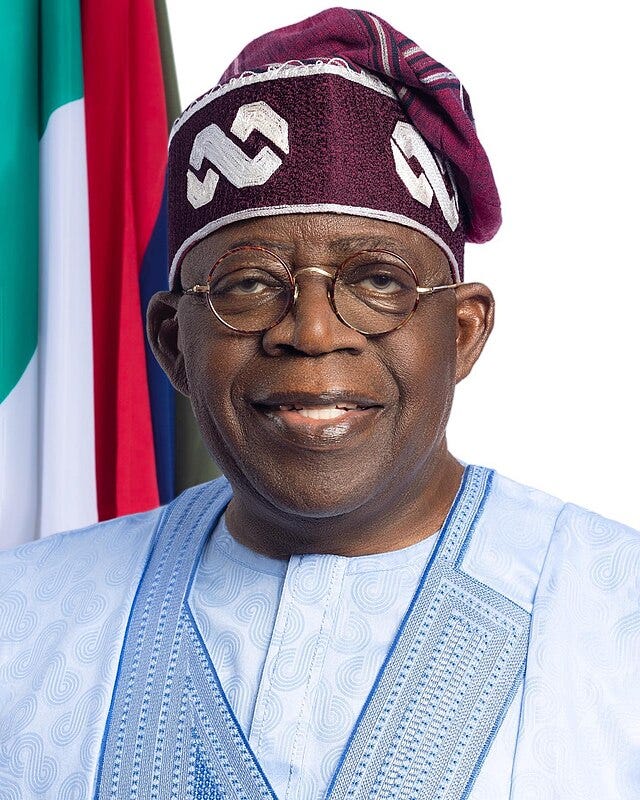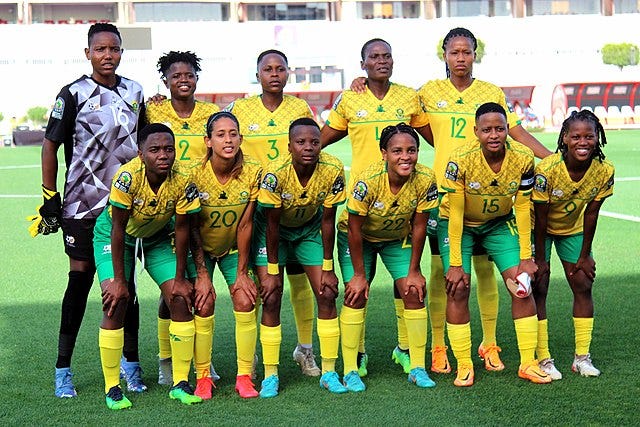🔅 China's Problematic Online Racism & South Africa's Women's World Cup Success With a Side of Inequality
Plus, Ethiopian Airlines Gets Crafty & BRICS Go Local
Photo of the day: Porto-Novo, Benin

Markets — Year to Date:
🟢 Nigerian SE: 64,743.96 (+26.33%)
🟢 Johannesburg SE: 74,375.22 (+1.82%)
🟢 Ghana SE: 3,061.68 (+25.28%)
🔴 Nairobi SE: 101.35 (-20.49%)
🟢 US S&P 500: 4,368.63 (+14.24%)
🟢 Shanghai Composite: 3,131.95 (+0.50%)
Ghana and Tanzania Feeling the Heat | Prices are rising in Ghana and Tanzania, with Ghana’s inflation rate unexpectedly spiking to a four-month high of 43.1% in July. Tanzania didn’t get off too lightly either, with consumer prices there going up 3.3% in the same month.
*Data accurate as of the close of markets across the continent
Brief & Bright: Africa's Top Five Highlights
China's Problematic Online Racism

The Chinese internet is full of racist content targeting Black people, and it's a problem. Human Rights Watch's investigation revealed offensive stereotypes and racial slurs on Weibo, Douyin, Bilibili, Livestream, Kuaishou, and Xiaohongshu—the companies' policies on the issue were inadequate, the rights group said. Videos portraying Black Africans as primitive and dependent on Chinese people were particularly popular, and there was a lot of talk about Black people "contaminating" and "threatening" the Chinese race, notably through marriage. The Chinese government's stance on the matter is, well, a little confusing. They promote China-Africa anti-colonial solidarity and unity, but at the same time, ignore the racism on the Chinese internet. Human Rights Watch's China researcher, Yaqiu Wang, put it best: “Beijing should recognise that undertaking investments in Africa and embracing China-Africa friendship won’t undo harm caused by unaddressed racism.”
Ethiopian Airlines' New Venture: Let's Make Our Own Parts

Ethiopian Airlines is getting crafty. The biggest airline in Africa has just inked a deal with Boeing to start making its own aircraft parts. The $15 million investment is expected to create 300 jobs in the process. The parts made will include thermo-acoustic insulation blankets, electrical wire harnesses, and other bits and bobs that make planes fly. With the Ukraine war crisis cutting off the supply of Russian titanium, other African airlines have suffered flight disruptions due to a shortage of parts. It remains to be seen if Ethiopian Airlines has suffered the same fate, but with the new venture, they're making sure that won't be a problem. The airline reported a 20% jump in earnings to $6.1 billion in their last financial year, so they're clearly doing something right.
BRICS Go Local: Currency Exchange On the Agenda
The BRICS Summit in South Africa later this month will see the group of emerging-market nations discussing deepening the use of local currencies in trade between member states. We’re talking about a common payment system that reduces the groups' reliance on the mighty dollar. A technical committee might even be formed to consider a joint currency.
Nigeria Eases Cost of Living Crisis with Food Relief
Nigerian President Bola Tinubu is getting some heat from the unions for cutting fuel subsidies and letting the naira devalue—both of which have caused inflation to hit an 18-year high. So, in an effort to cushion the blow of rising food prices and ease the cost of living crisis, Tinubu has approved a cool 180 billion naira ($235 mln) for the 36 states to buy rice and maize. Each state will get 5 billion naira—partly a grant and a 2-year loan—to purchase 100,000 trucks of rice and 40,000 trucks of maize. In addition to this relief package, Tinubu has announced a 500 billion naira package to boost employment and ordered the release of more than 200,000 metric tons of grains to families. The government also plans to deploy mass transit buses powered by natural gas and electric vehicles with charging points to reduce transport costs.
S. Africa's Women's World Cup Success - With a Side of Inequality
South Africa’s women’s soccer team, Banyana Banyana, have made history by becoming the first African team to make it to the World Cup knockouts. But their success has been a bit overshadowed by a dispute with their own football association over pay and bonuses. For instance, each player on the men’s team would have received a 250,000 rand bonus if they had qualified for the World Cup in Qatar (which they didn't), while the women’s players only got 55,000 rand for reaching the final of the Women’s Africa Cup of Nations. That’s a stark reminder of the gender pay gap that persists in soccer—the Women’s World Cup prize money was a paltry $152 million, compared to $440 million for the men’s tournament.
Food for Thought
“No one became wealthy because they broke a holiday and no one who gained weight because they broke a fast.”
— Ethiopian Proverb.
Are we hitting the mark?
Enjoying Baobab's updates? Spread the joy and share us with friends and colleagues — we'd be thrilled to have them join!
Feedback or thoughts? Just hit reply. We're all ears!





